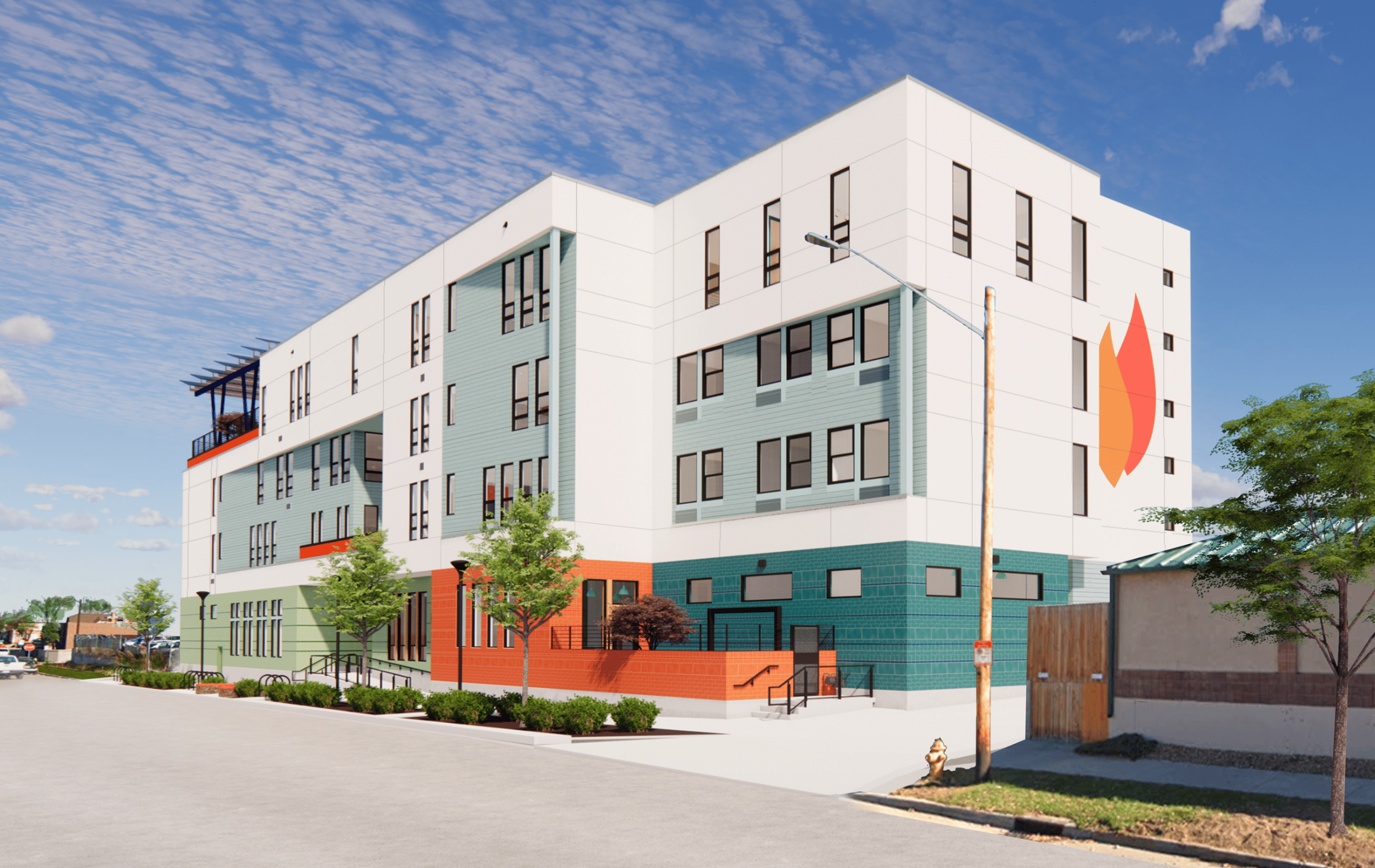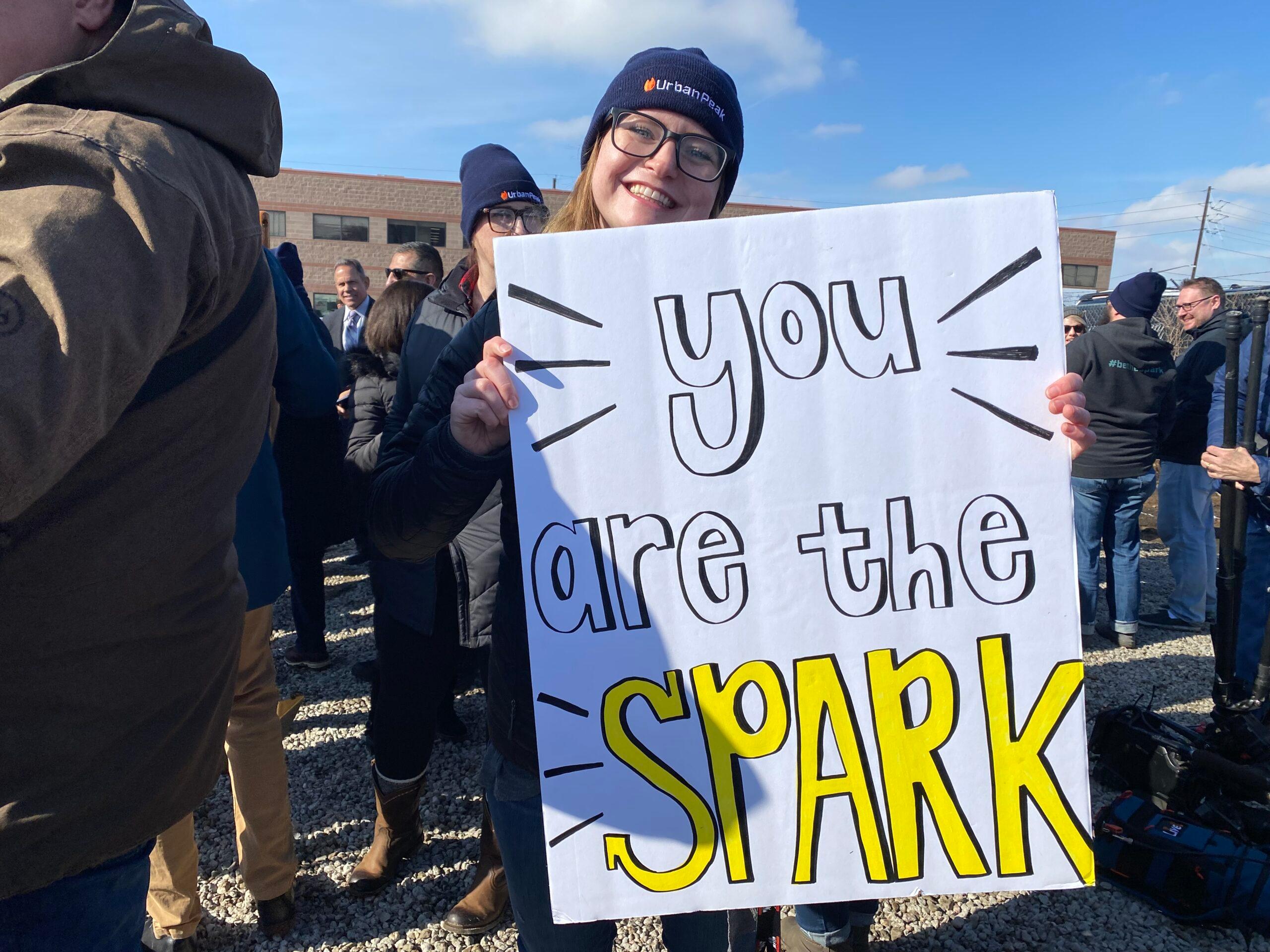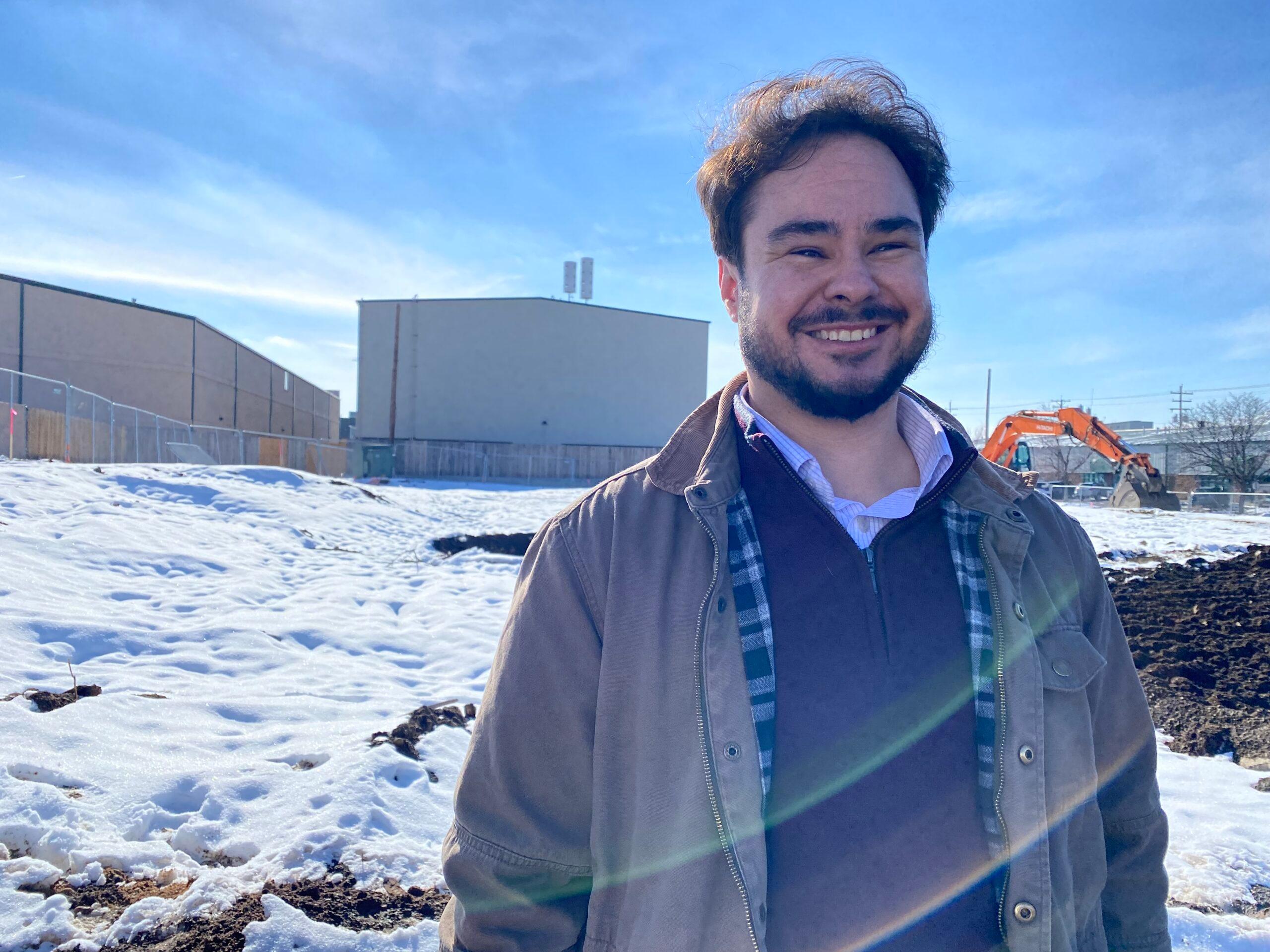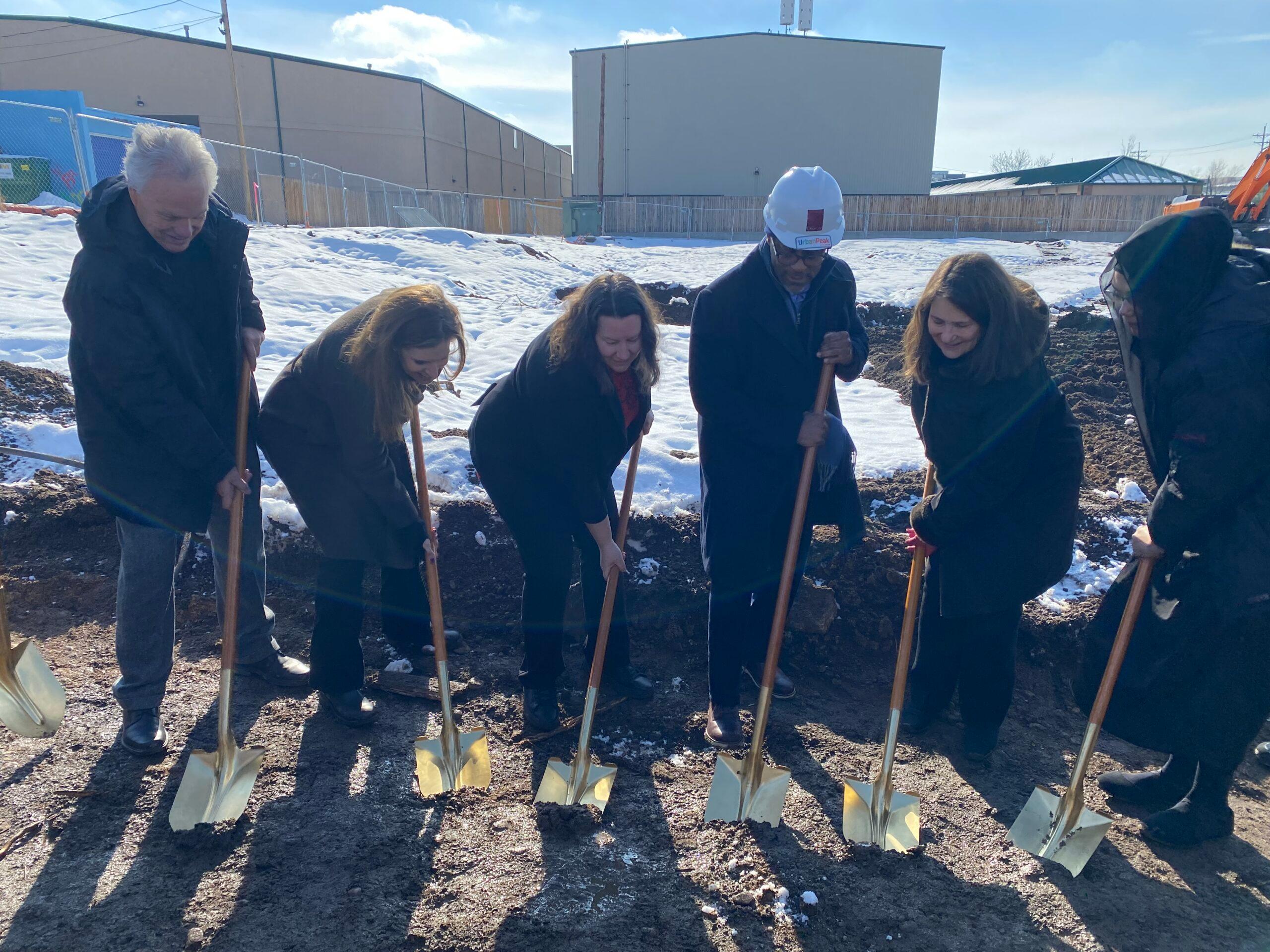For local leaders, groundbreakings and ribbon cuttings are typically causes for celebration, hard hats, shovels and all. But Monday's ceremony, marking the start of construction on a new shelter for youth experiencing homelessness, started with something else: a moment of silence.
The mood tempered as Urban Peak CEO Christina Carlson shared the news that a member of the nonprofit's community who was experiencing homelessness had recently passed away while camping in a tent - putting the need for more resources into stark relief.
"As we mourn someone we care deeply about, we get to look to the future," Carlson said. "We are deep believers that this project and the work that we are doing in the city and in the state, and at the federal level, can really change and save lives."

The new $37 million shelter, nicknamed the "Mothership," is set to open at Urban Peak's old site on Acoma St. in 2024.
Urban Peak began serving youth experiencing homelessness in 1998 and grew to serve around 1,000 teens and young adults in 2021. But the shelter became overcrowded, rundown and in need of repairs.
The new building will increase shelter capacity from 30 residents to 136 residents, add on-site case management and health services. It will also include a separate wing for people ages 21 to 24.
In the meantime, Urban Peak is serving youth at The Spot on Stout St.
The project comes as homelessness has risen in Denver, from around 4,500 in 2020 to around 5,500 in 2021, according to a 2021 shelter count. Data from a research group studying youth experiencing homelessness found youth without a high school diploma or GED, youth with children, youth earning less than $24,000 as well as LGBT, Black and Hispanic youth are all at increased risk.

"I think we would all be blind to not recognize the incredible destruction and devastating impact for people experiencing homelessness that we see on the streets," Carlson said. "I always want to remind folks that we are not just talking about who you see, we are talking about a population of people that are sleeping on couches, or in hotels, or are unstably housed."
Carlson said she is particularly excited for the new separate wing for young adults, who legally cannot stay in shelters for minors, but often do not want to stay in adult shelters. So, they end up camping on the streets. The new shelter will also provide residents with more privacy than the previous building.
The money for the project comes from a mix of private and public funding.
Rep. Diana DeGette helped secure $3 million in federal funding through a Congressional spending package in March of 2022, and an additional $400,000 for Urban Peak to continue providing services during construction. At the groundbreaking, Mayor Michael Hancock thanked voters for approving a 2021 bond package, allowing Denver to borrow millions of dollars for city projects.
"This facility will build on the progress we've made in our city and make it easier than ever for teens and young adults to get the help and support that they need," Hancock said. "I'm pretty darn proud to be here today."

Jason Marquez lived at Urban Peak's shelter when he was younger. Now he serves on the board, and knows firsthand the way the new shelter will help young people.
When he lived there the summer after his freshman year of college, Marquez described Urban Peak's building as "falling down." But the services he received were vital. In addition to shelter, Marquez got employment and housing help, going on to get a degree in social work and attend law school. He said the new facility's ability to provide on-site support services, as well as assistance in things like cooking and laundry, are important in helping residents become independent.
"I wouldn't have been able to realize my potential had it not been for services like Urban Peak," he said. "People have got to have secure, safe, adequate housing, because you can't really focus on doing anything else when you're engaged in a day-to-day struggle to meet your fundamental basic needs."
Marquez said that many people do not realize how homelessness can happen to anyone, and that resources for adults, in addition to youth, are just as important.
"I think it's easy for people to almost dehumanize folks who are experiencing homelessness," he said. "It's a lot easier to view homelessness as something that people did, as opposed to something that happened to them."












